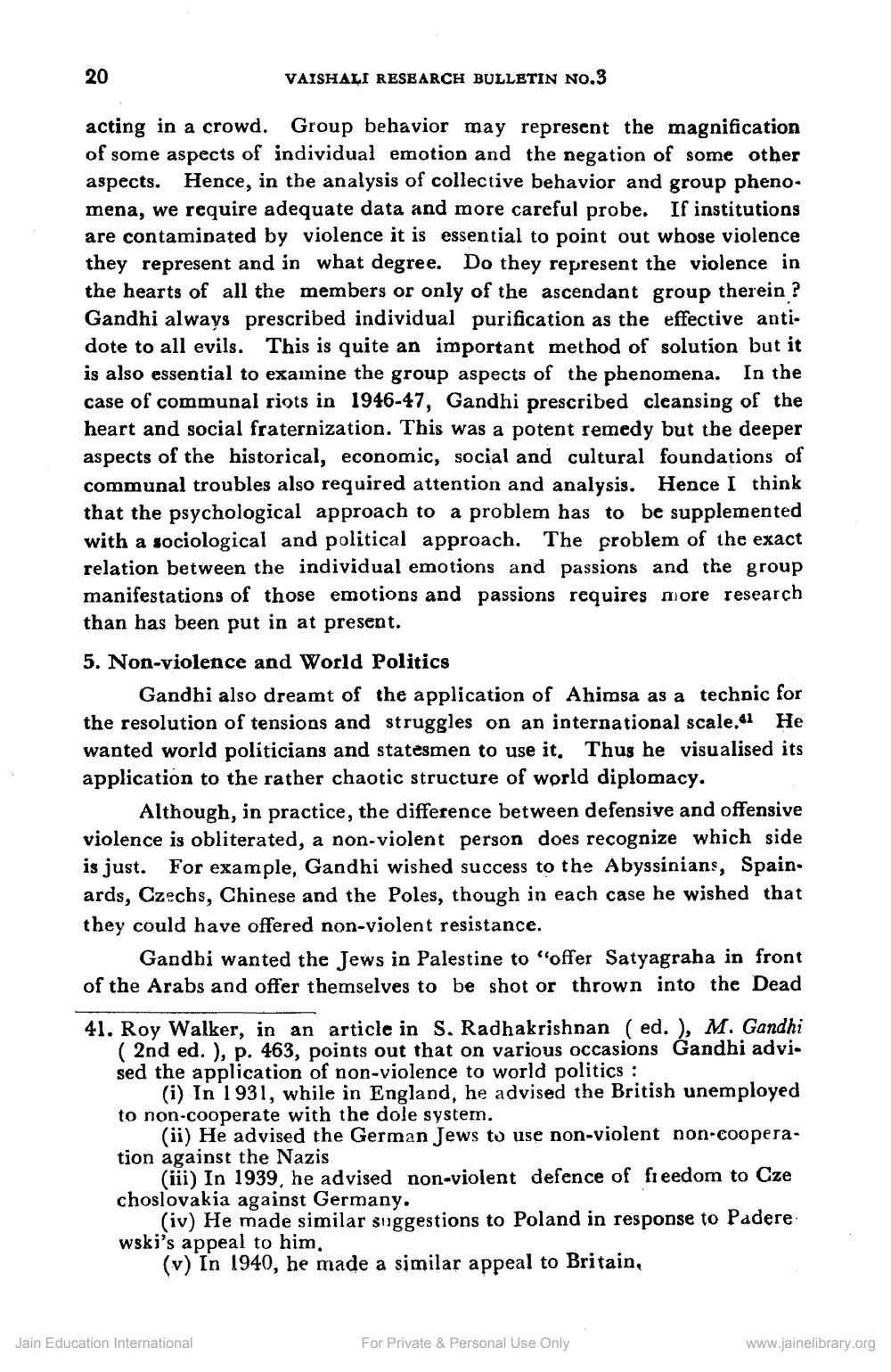________________
20
VAISHALI RESEARCH BULLETIN NO.3
acting in a crowd. Group behavior may represent the magnification of some aspects of individual emotion and the negation of some other aspects. Hence, in the analysis of collective behavior and group pheno mena, we require adequate data and more careful probe. If institutions are contaminated by violence it is essential to point out whose violence they represent and in what degree. Do they represent the violence in the hearts of all the members or only of the ascendant group therein ? Gandhi always prescribed individual purification as the effective antidote to all evils. This is quite an important method of solution but it is also essential to examine the group aspects of the phenomena. In the case of communal riots in 1946-47, Gandhi prescribed cleansing of the heart and social fraternization. This was a potent remedy but the deeper aspects of the historical, economic, social and cultural foundations of communal troubles also required attention and analysis. Hence I think that the psychological approach to a problem has to be supplemented with a sociological and political approach. The problem of the exact relation between the individual emotions and passions and the group manifestations of those emotions and passions requires more research than has been put in at present.
5. Non-violence and World Politics
Gandhi also dreamt of the application of Ahimsa as a technic for the resolution of tensions and struggles on an international scale.41 He wanted world politicians and statesmen to use it. Thus he visualised its application to the rather chaotic structure of world diplomacy.
Although, in practice, the difference between defensive and offensive violence is obliterated, a non-violent person does recognize which side is just. For example, Gandhi wished success to the Abyssinians, Spain. ards, Czechs, Chinese and the Poles, though in each case he wished that they could have offered non-violent resistance.
Gandhi wanted the Jews in Palestine to "offer Satyagraha in front of the Arabs and offer themselves to be shot or thrown into the Dead
41. Roy Walker, in an article in S. Radhakrishnan (ed.), M. Gandhi (2nd ed.), p. 463, points out that on various occasions Gandhi advised the application of non-violence to world politics:
(i) In 1931, while in England, he advised the British unemployed to non-cooperate with the dole system.
(ii) He advised the German Jews to use non-violent non-cooperation against the Nazis.
(iii) In 1939, he advised non-violent defence of freedom to Cze choslovakia against Germany.
(iv) He made similar suggestions to Poland in response to Padere wski's appeal to him.
(v) In 1940, he made a similar appeal to Britain,
Jain Education International
For Private & Personal Use Only
www.jainelibrary.org




